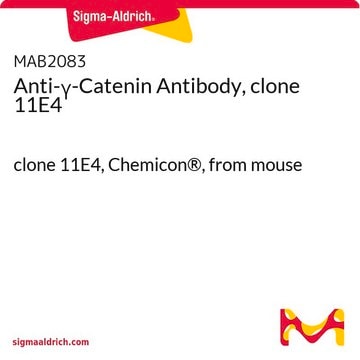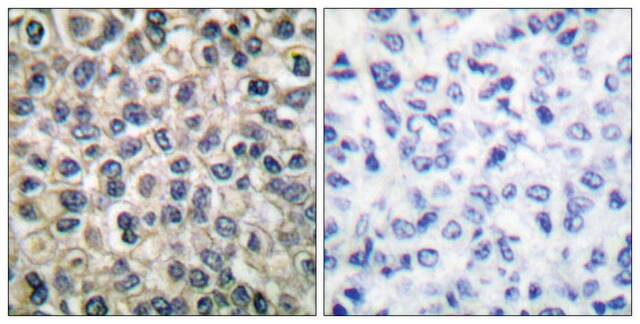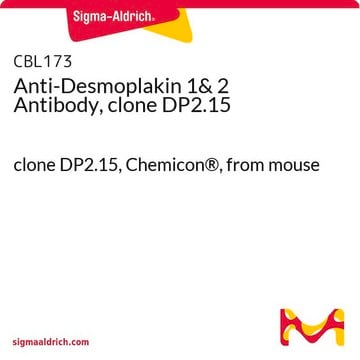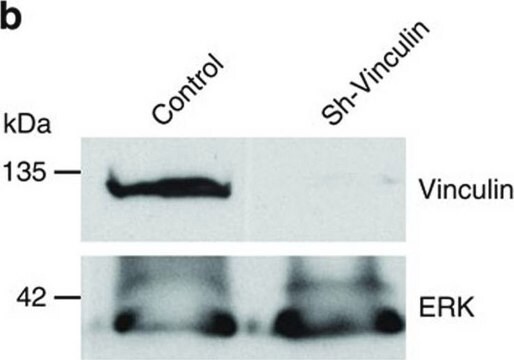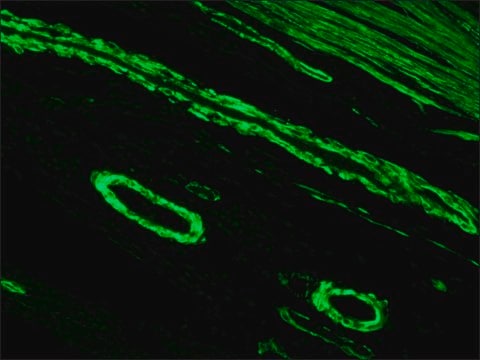P8087
Monoclonal Anti-Plakoglobin (Catenin γ) antibody produced in mouse
clone 15F11, ascites fluid, buffered aqueous solution
Scegli un formato
315,70 €
Prezzo di listino451,00 €Risparmia il 30%Scegli un formato
About This Item
315,70 €
Prezzo di listino451,00 €Risparmia il 30%Prodotti consigliati
Origine biologica
mouse
Livello qualitativo
Coniugato
unconjugated
Forma dell’anticorpo
ascites fluid
Tipo di anticorpo
primary antibodies
Clone
15F11, monoclonal
Stato
buffered aqueous solution
PM
antigen 85 kDa
contiene
15 mM sodium azide
Reattività contro le specie
bovine, canine, human
tecniche
immunocytochemistry: suitable using cultured cells
immunohistochemistry (frozen sections): suitable
immunoprecipitation (IP): suitable
indirect immunofluorescence: 1:1,000 using cultured MDBK cells
microarray: suitable
western blot: 1:2,000 using cultured MDBK cells
Isotipo
IgG1
N° accesso UniProt
Condizioni di spedizione
dry ice
Temperatura di conservazione
−20°C
modifica post-traduzionali bersaglio
unmodified
Informazioni sul gene
human ... JUP(3728)
Descrizione generale
Specificità
Immunogeno
Applicazioni
Esclusione di responsabilità
Non trovi il prodotto giusto?
Prova il nostro Motore di ricerca dei prodotti.
Codice della classe di stoccaggio
10 - Combustible liquids
Classe di pericolosità dell'acqua (WGK)
nwg
Punto d’infiammabilità (°F)
Not applicable
Punto d’infiammabilità (°C)
Not applicable
Scegli una delle versioni più recenti:
Certificati d'analisi (COA)
Non trovi la versione di tuo interesse?
Se hai bisogno di una versione specifica, puoi cercare il certificato tramite il numero di lotto.
Possiedi già questo prodotto?
I documenti relativi ai prodotti acquistati recentemente sono disponibili nell’Archivio dei documenti.
Filtri attivi
Il team dei nostri ricercatori vanta grande esperienza in tutte le aree della ricerca quali Life Science, scienza dei materiali, sintesi chimica, cromatografia, discipline analitiche, ecc..
Contatta l'Assistenza Tecnica.
